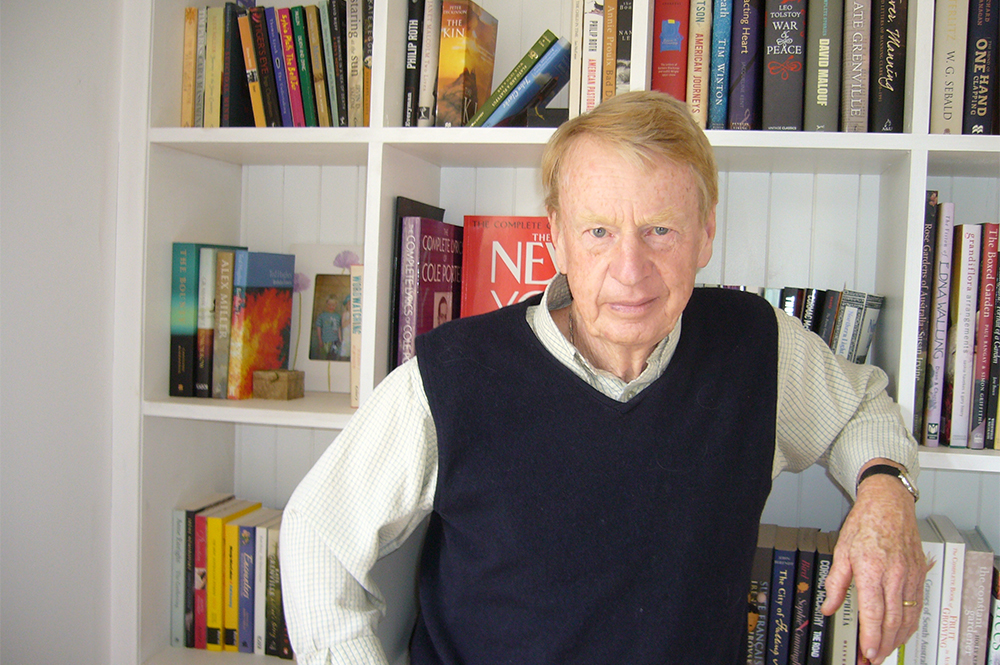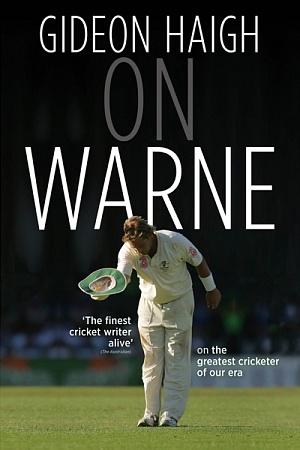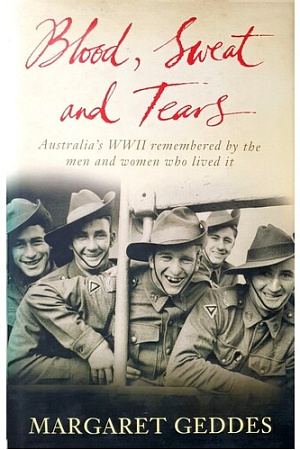A tribute to Brian Matthews

My father, Brian Matthews, who has died of cancer aged eighty-five, was a contributor to Australian Book Review for forty years. He enthusiastically supported the journal from the early days of its re-establishment in 1978 under the editorship of John McLaren. He wrote for it prolifically under later editors – never more so than under the current editorship.
A founder of Australian studies in the 1970s, Brian strongly believed in the promotion of Australian literary culture. Though he was an academic throughout his career – at Flinders University, the Menzies Centre for Australian Studies at the University of London, and the Victoria University, Melbourne – by the late 1980s he had largely given up academic forms of writing and aimed instead to communicate with the broadest possible audience.
Brian began as a university teacher in the late 1960s at the new Flinders University in South Australia, teaching the standard English literary curriculum of the day. He never lost his interest in Romantic poetry or in the great nineteenth-century novelists. But an MA under the direction of Vincent Buckley at the University of Melbourne consolidated his interest in Henry Lawson and led to a first book, The Receding Wave: Henry Lawson’s prose (MUP, 1972).
I have very dim memories of his doing the index himself on a set of cards. He would later say that he had done an injustice to Lawson’s mother, Louisa, in this book. In fact the entry for ‘Lawson, Louisa’ in the index is slightly longer than that for Henry.
A seed must have been planted then: though academic essays in the quarterly journals and a doctoral thesis on George Orwell would follow in the 1970s, he was increasingly preoccupied with the figure of Louisa Lawson. At first he attempted a biography, but lack of material quickly made that unfeasible. Gradually, something much less conventional began to take shape, perhaps reflecting his own reading in postmodern fiction at the time.
McPhee Gribble in Melbourne was then throwing down a major challenge to the big players in Australian publishing. Hilary McPhee became interested and published the new book under the simple title Louisa in 1987. It was an instant hit with reviewers and went on to win the Victorian Premier’s Award for non-fiction and the Australian Literature Society Gold Medal. McPhee Gribble brought out a collection of short stories, Quickening, in 1989 and the self-described ‘larrikin essays’ in Oval Dreams in 1991.
On the strength of Louisa, another publisher commissioned a biography, this time of Manning Clark. Almost immediately, however, Brian was offered the directorship of the Menzies Centre for Australian Studies in London. He began a four-year stint there early in 1993 – a rewarding time but the first of many delays to the Clark project, which eventually appeared with a new publisher, Allen & Unwin, in 2008. In the late 1990s, following a return to Australia in the role of director of the Europe–Australia Institute at Victoria University, Brian found many literary distractions: Federation appeared in 1999 at the time of the republic referendum; a memoir, A Fine and Private Place, in 2000, and in 2003 what I suspect was his favourite book, an eccentric history of the MCG entitled The Temple Down the Road. At the same time, regular columns flowed in The Australian.
In retirement after the Clark biography appeared, Brian slowed down on the books, while still writing a monthly column for Eureka Street. His last book, Benaud: An appreciation, appeared with Text in 2016. Unauthorised, and not really a biography anyway, the book brought together most of the things he was interested in: the elusive biographical subject, and popular culture, especially Australian sport, and a preoccupation with mid-twentieth-century Australia.
In recent years, Brian suffered various health problems. Earlier this year he turned down a review request from Peter Rose (itself a near-historic event). He was having problems with his right arm and consequent difficulty using a keyboard. This proved to be the harbinger of a serious illness. He died on 2 June in the tranquil surrounds of the district hospital in Strathalbyn in the heart of the Adelaide Hills, where he had made his home, on and off, for the past fifty years.









Comments (2)
I'm slightly ashamed to say that this is the first I've heard of his passing, and even then only through a (glowing) mention in The Footy Almanac.
My father, Jack, was a great friend of Brian's and I was privileged in his later years to accompany him to the regular Friday lunch on Brunswick St, Fitzroy, with characters such as Jack Hibberd, John Timlin, Robert Newton, David Potts and others. Brian was an occasional and always welcome participant.
My mother, Pat, also remembers him very fondly.
I will remember him - apart from his writing - as a warm and generous man with a quick smile and a way of including everyone in his invariably interesting conversation.
I'll have a drink to him tonight when watching the cricket, and break out my copy of the 'Temple Down the Road'.
Thank you for the memories of Brian and please pass a message of love from my family to yours.
I've never forgotten Brian and don't know what persuaded me to Google his name today, but I'm glad I did so that I can let you know that I really did enjoy working with him - he was a lovely, kind, fun person.
Leave a comment
If you are an ABR subscriber, you will need to sign in to post a comment.
If you have forgotten your sign in details, or if you receive an error message when trying to submit your comment, please email your comment (and the name of the article to which it relates) to ABR Comments. We will review your comment and, subject to approval, we will post it under your name.
Please note that all comments must be approved by ABR and comply with our Terms & Conditions.